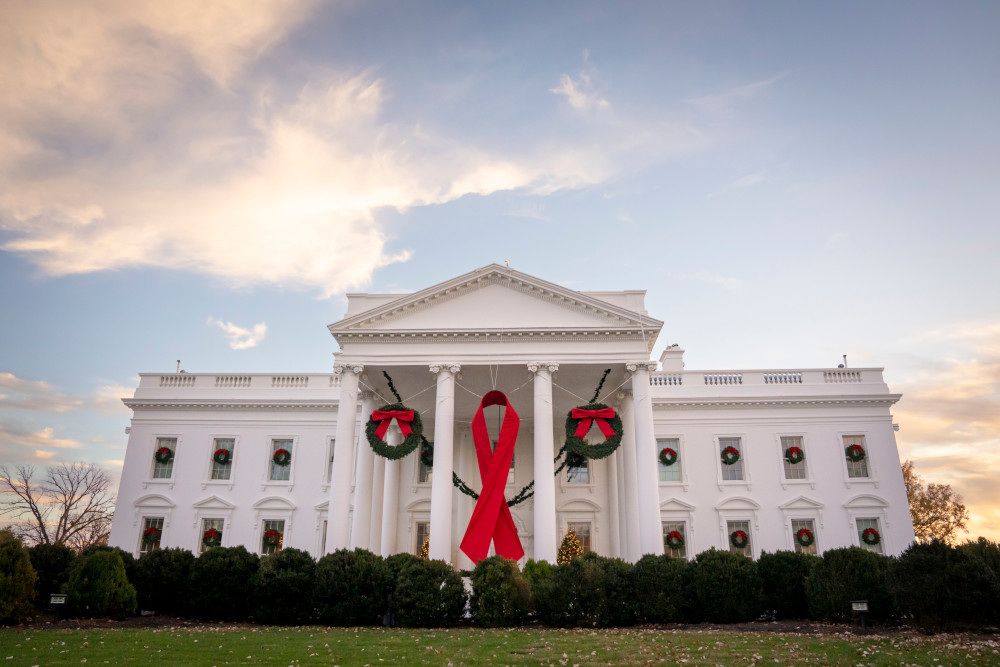This year’s theme for World AIDS Day is “Collective Action: Sustain and Accelerate HIV Progress.” It’s a day to remember and honor those we’ve lost to the AIDS epidemic and reflect on how far we’ve come in the fight against HIV.
Over the past four decades, collective efforts have driven remarkable progress in addressing the devastation caused by HIV and AIDS. The courage and advocacy of people living with HIV—those who demanded visibility, inclusion, and a voice—have been at the heart of this movement. They led the charge in partnership with researchers, doctors, healthcare providers, and activists to discover effective treatments, challenge stigma, promote prevention, and push for policies that support care and research for an HIV cure.
The work of The Reunion Project plays a critical role in this journey. It provides a platform for sharing stories of loss, survival, and connection—essential elements of collective healing and care. Too often, those most impacted by HIV are the ones whose voices are marginalized, whether because of race, gender identity, or socioeconomic status. When we fail to address the systemic barriers—such as housing, food security, access to care—we risk perpetuating the cycle of inequity that keeps many people from thriving, even with the advances in treatment.
For people living with HIV, the struggles of isolation, loneliness, and stigma remain significant, especially for older adults. In a 2017 survey of over 300 people age 50 and older, one-third experienced social isolation, 82% faced moderate to high levels of loneliness, and nearly 60% struggled with self-stigma.
While we continue to tackle these disparities, we must also look toward the future, building on the successes we’ve achieved. Recently, the Biden Administration outlined efforts to end HIV/AIDS both at home and abroad. Treatment as Prevention (TasP) and U=U (Undetectable equals Untransmittable) have revolutionized our approach, reducing stigma and allowing people to engage in more open, honest conversations about HIV with their partners and healthcare providers. New long-acting injectables for both treatment and prevention are now available, with even more promising options on the horizon that could help us end the HIV epidemic once and for all.
But we cannot rely solely on treatment to resolve this crisis. Improving the quality of life for people living with HIV—especially those aging with the virus—is critical. This week the White House is convening a Quality-of-Life Symposium, where The Reunion Project and other members of the U.S. People living with HIV Caucus will be joining with our federal partners, the Office of National AIDS Policy (ONAP) and Director Francisco Ruiz, and key stakeholders to discuss fundamental aspects of quality of life—including mental health, housing, nutrition, and employment—to foster a shared understanding of what quality of life means for people living with HIV. We’ll also seek to strengthen communication and collaboration between community partners, researchers, and federal agencies engaged in this critical work. To ensure broad participation, ONAP is offering a virtual option for key portions of the summit on Thursday, December 5, 2024, from 9:00 a.m. to 4:00 p.m. EST.
However, we must not become complacent. The fear and uncertainty many of us feel today, particularly in this political climate, can evoke memories of the early days of the epidemic, when the future seemed uncertain and filled with dread. Yet, we have the power to shape that future by caring for ourselves and each other, and by continuing to demand the visibility, rights, and support that all people living with HIV deserve.
We must remember that this is a long-term fight, and we need to pace ourselves. For me, this means prioritizing self-care through relaxation techniques, mindfulness, meditation, breathwork, and support groups. There are countless resources—like YouTube videos—that can help. Physical activity is another great way to support mental well-being. Reducing my exposure to news and social media also plays an important role in maintaining balance. Cultivating healthy habits around diet, exercise, and lifestyle can reduce stress and improve our outlook on life.
The old adage, “You can’t pour from an empty cup,” holds true. As Audre Lorde so powerfully said, “Caring for myself is not self-indulgence, it is self-preservation, and that is an act of political warfare.”
Let’s continue to take care of ourselves and each other. Be well and stay safe.
